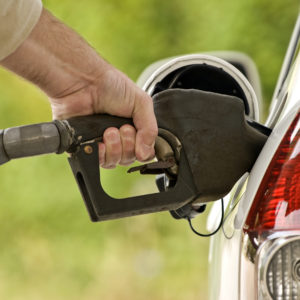The Trump administration gives every indication of radically altering or perhaps ending the Obama CAFE rules. That would be a wise course of action in spite of the howls of protest.
CAFE didn’t make a lot of sense in the 1970s when it was created, and with the passage of time, it has made even less. It was created in response to the first Arab oil embargo as a way of saving gasoline and reducing import dependence. At the time, Congress had two choices for achieving increased efficiency—raise the gasoline tax or regulate less use. Relying on market forces was the most efficient approach to reducing oil use but then every motorist would know who was making them pay more and drive less. So, in typical politician fashion, Congress chose the regulatory approach which has morphed into a climate action program. Of course, there was a more obvious approach.
When CAFE went into effect, it imposed a devastating economic blow to domestic automakers because of the law of comparative advantage. The Big Three excelled in building larger vehicles that people wanted, and Japan and European automakers excelled in building smaller cars with higher gas mileage. The first generation of smaller cars produced by domestics were not equal in quality to their foreign competition, so foreign automakers captured market share. The government then took steps to limit imports—an example of the law of unintended consequences. Moreover, since most buyers preferred larger, more comfortable vehicles, the Big Three had to sell small cars at a loss to induce their purchase and raised the price of larger models to compensate. In time, they also figured out how to get around CAFÉ, which had different requirements for trucks by creating SUVs.
Although CAFE was promoted as a way to reduce dependence on foreign oil, it did not achieve that objective since oil imports continued to rise. And, there were other examples of the law of unintended consequences. Since higher miles per gallon lowered the cost of driving, people actually drove more—the economic principle of the rebound effect. And, since the easiest way to achieve higher miles per gallon is to reduce the size and weight of automobiles, hence making them less safe, there was an increase in highway fatalities.
In 2002, the National Academy of Sciences set up a committee to assess the effectiveness and impact of CAFE standards. It was a comprehensive review of the history and potential of the CAFE program. It confirmed that there were a range of options for achieving increased automotive efficiency and that CAFE was not the most cost-effective approach.
Market forces demonstrate time and time again that consumers have a range of automotive preferences and that gasoline and diesel prices strongly influence the type of vehicles that they purchase. According to a March 16 Wall Street Journal opinion piece, “as gasoline prices plunged, truck and SUV sales have soared. Last year, trucks made up nearly 61% of the U.S. vehicle market.”
Our air quality has continued to get better and stationery sources, not mobile sources, are the primary source of smog forming pollutants. And, the connection between tailpipe emissions and global temperatures is non existent. Scrapping CAFE will not take us backwards environmentally because of other Clean Air Act provisions. Automakers will continue their investments in technologies and consumers will remain sensitive to gasoline prices which are cyclical. In spite of government actions on alternatives to the internal combustion engine, the availability of oil for making gasoline is not constrained. In addition to scrapping CAFE, we can get rid of the subsidies that have promoted crony capitalism in the auto market.
A failure to get rid of or radically alter CAFE will prove that Ronald Reagan was right when he said that the closest thing to perpetual life is a government program.

